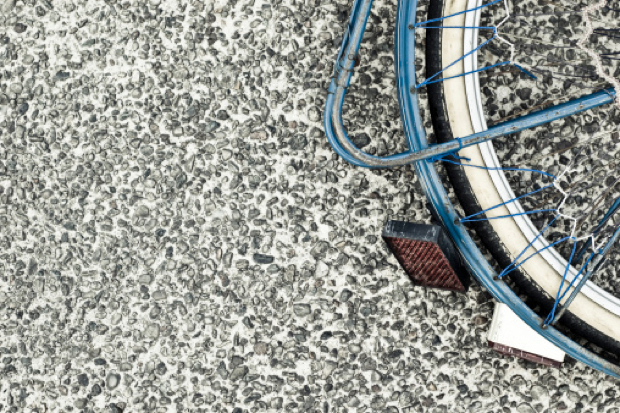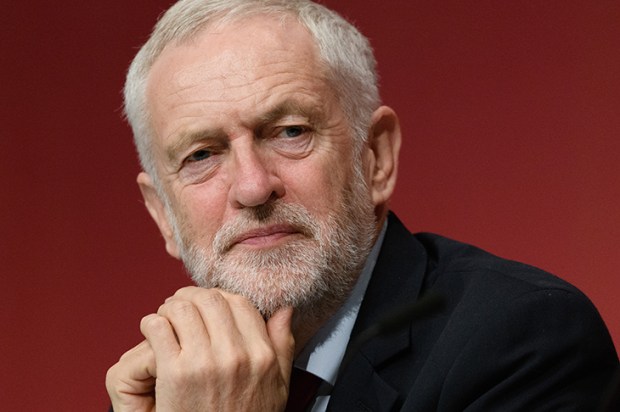This is probably the most self-indulgent column I’ve written. I hope not to make a habit of it. It’s an ode to — and something of a lament for — my own right arm.
I was six when I fell off a small cliff above a disused railway embankment in Nicosia, Cyprus. The blue bicycle I was wheeling was new: a birthday present and my first bike. A novice, I let the back wheel slip over the edge — and if you’re holding the handlebars and the back wheel slides, a bicycle moves in counter-intuitive ways. Mine pulled me with it. I refused to let go.
I came to in a heap, in the dust, bicycle beside me and blood everywhere. Two small Greek boys were staring at me in horror. I struggled to my feet. I could see now that there was something terribly wrong with my right arm, and I was half a mile from home and my whole impulsion was to get home. But I didn’t want to abandon the bike — I still remember that. I had to, and began trudging along the dusty track to our house — crying, I remember.
There was a trail of blood in the dust behind me. I remember that, but cannot remember inspecting my arm until I passed a Cypriot man on the road, who stared at me in great alarm (this was a time of terrorist attacks on the British in Cyprus) and all but ran away. Funny, after some 60 years I still remember which side of the road he passed me on. His fear sharpened mine.
Now I saw how bad it was. The elbow was a piece of meat in Grandpa’s butcher’s shop in Sydenham, a bloody mess with the white of a bone sticking through the flesh. A neighbour drove us to the hospital and I sat in the front on Dad’s knee, bleeding all over his suit, his good suit, and he didn’t seem to care. His not minding that a suit was being ruined was uncharacteristic, and frightened me.
Confused weeks passed. I remember little, except a badly burned bomb victim in an adjacent hospital bed, being forced to eat Greek yogurt, and nights of pain as the stomach graze (which had hurt worst) healed and the arm ached more and more. And the smell of what I think was ether. Our Greek Cypriot GP had recommended a clinic he knew, but the family had preferred a colonial hospital with British army surgeons.
They must have botched it. Discharging me, in plaster, they told my parents the elbow could not be saved and would never bend again. My father decided to take me to England so Great Ormond Street Children’s Hospital could try again, leaving me with his parents. I heard my parents discussing the medical advice, which was that if the arm was re-broken and re-set there was a danger the nerves would not reconnect, but it was worth trying.
Airlines in the 1950s used to take you to the airport. A car came for us, containing Randolph Churchill. He was drunk and abusive. My father later told me he expected a car to himself, not a detour to fetch a sick child. He was unpleasant to the air hostesses on the flight, too.
There followed months in London that felt and still feel like a fracture in my life: grandparents I had not known in a London I did not know; a panicky fear of injections into my arm; a big hospital ward; a blind terror of the circular saw to remove the old plaster; the smell of gas; a dream of a line of little lights filing below where I stood alone on a dark hill; Grandma’s visits, and her laughing at my face smudged with soot in the grid pattern of the wire mesh against which I’d pressed my face to see London from a high balcony. My new plaster covered my torso from waist to neck, the plastered right arm cantilevered stiffly out, horizontal, supported on a strut. And then months in Grandma’s house and garden, and Rag, Tag & Bobtail on television, and planting seedling trees with one arm, and crumbs itching down the back of my plaster, and the fear again of the circular saw.
But the saw came, and I was braver this time, and after a tense few minutes the revealed arm — slightly wasted now — did work, and the elbow would bend, and the nerve had healed; and I began to see the chapter in my life as somehow heroic, because Grandma told me so. With great wisdom she must have hidden any hint of alarm at the new shape of my right arm: bent by about 20 degrees like a half-cocked rifle (they call it a ‘gunstock deformity’) so that if I stand to attention I appear in silhouette to have a handle. But Grandma said it was as good as new and huge scars were a badge of honour, and so did everyone, and Mum and Dad said it was wonderful and took me home in triumph: the luckiest boy in the world.
And the elbow worked. For nearly 60 years I’ve never had the least trouble. My right arm lacks the bending-range of my left, but in a long-sleeved shirt nobody notices the disfigurement. I’ve always said appearance never bothered me, but photographs over the years show my pose always calculated to conceal the deformity, so perhaps I do care that it’s ugly. But still I love the elbow as a kind of miracle. It has served me so well. I’ve been so fortunate.
A couple of months ago, after lifting some rocks, I had a night of pain in the elbow. The pain faded but left a tingling, like pins and needles, down the right side of my hand. My little finger became partly numb. On the internet I read that there’s a nerve whose ‘canal’ through the elbow may become pinched, particularly if there’s an old injury to the joint; and this can cause these symptoms. So that must be it. Why bother a GP?
I’ve left it a couple of months. It may go away of its own accord. No sign yet so — do you know? — I’m just going to live with it. I can’t key the p and the semi-colon with the old precision when I type, but so what? Who cares about a p and a semi-colon: I don’t want to push my luck. Sixty years’ good use — how lucky is that? I look with strange tenderness at that elbow, and reflect that I should simply be grateful.
Got something to add? Join the discussion and comment below.
Get 10 issues for just $10
Subscribe to The Spectator Australia today for the next 10 magazine issues, plus full online access, for just $10.
You might disagree with half of it, but you’ll enjoy reading all of it. Try your first month for free, then just $2 a week for the remainder of your first year.















Comments
Don't miss out
Join the conversation with other Spectator Australia readers. Subscribe to leave a comment.
SUBSCRIBEAlready a subscriber? Log in